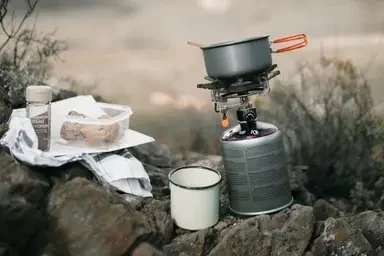Discover the principles of Leave No Trace cooking. Learn how to cook outdoors sustainably, minimize waste, and protect nature while enjoying delicious camping meals.

- What Leave No Trace Cooking Means
- The Importance of Sustainable Practices
- Choosing the Right Cooking Gear
- Food Preparation and Packaging
- Real-Life Camping Examples
- Long-Term Benefits for Nature
- Finding Help and Resources
What Leave No Trace Cooking Means
Leave No Trace cooking is about preparing meals outdoors while minimizing environmental impact. It is not just a guideline but a philosophy rooted in respecting the land, waterways, and wildlife. This principle emphasizes reducing waste, avoiding damage to vegetation, and ensuring that cooking fires or stoves are used responsibly. Many campers mistakenly think cooking outdoors is harmless, but food scraps, packaging, and improper disposal can disrupt ecosystems for years. Understanding this concept is the first step toward responsible outdoor adventures.
The Importance of Sustainable Practices
Sustainable cooking practices outdoors protect nature and preserve the wilderness for future generations. For example, washing dishes directly in rivers with soap can harm aquatic life, while burying food waste can attract animals to campgrounds, leading to unsafe interactions. Studies show that popular camping sites with poor waste management often suffer from soil contamination and declining wildlife. By adopting Leave No Trace cooking, campers play a vital role in preserving natural spaces while still enjoying their meals under the stars.
Choosing the Right Cooking Gear
One of the keys to successful Leave No Trace cooking is choosing the right gear. Lightweight stoves are recommended over open fires, as they reduce the risk of wildfires and leave no scars on the ground. Reusable cookware, utensils, and storage containers help limit single-use plastics and waste. For instance, many outdoor enthusiasts now carry collapsible silicone bowls and refillable fuel canisters to cut down on environmental impact. Investing in high-quality gear ensures not only efficiency but also a more eco-friendly camping experience.
Food Preparation and Packaging
How you prepare and package food before a camping trip makes a significant difference. Pre-portioning meals at home, storing food in reusable bags, and avoiding excess packaging prevent waste from accumulating at campsites. Choosing dehydrated or dry ingredients reduces spoilage and allows for lighter travel. Instead of canned goods, which require disposal, many campers now prefer resealable bags of grains or pasta. These small adjustments not only lighten the load but also align with Leave No Trace principles by minimizing garbage in the wilderness.
Real-Life Camping Examples
A group of hikers in Colorado once shared how they implemented Leave No Trace cooking during a week-long trip. They prepared simple meals like oatmeal with dried fruit, pasta with powdered sauces, and rice dishes. By using reusable containers, they generated almost no trash and left their campsite looking untouched. On the other hand, another group at the same site left behind aluminum foil, food scraps, and burned logs, causing rangers to close that area for restoration. These contrasting stories highlight the difference responsible cooking can make.
Long-Term Benefits for Nature
Leave No Trace cooking extends beyond personal satisfaction—it safeguards the environment long-term. When campers consistently minimize waste and use sustainable cooking methods, natural spaces remain healthier, safer, and more accessible. Fewer animals become dependent on human food, and vegetation remains undisturbed. As outdoor recreation grows in popularity across the U.S., these principles ensure that national parks, forests, and campgrounds stay pristine. By embracing this approach, campers also inspire others to adopt similar practices, creating a ripple effect of positive environmental stewardship.
Finding Help and Resources
Learning how to master Leave No Trace cooking doesn’t happen overnight, but resources are available. Many outdoor education groups offer workshops on eco-friendly camping, while some resorts and retreat centers, such as Pine Cliff Resort, provide guided experiences that teach these skills hands-on. For campers new to outdoor cooking, seeking professional guidance can make the transition easier and more enjoyable. Access to the right knowledge and equipment ensures a sustainable and rewarding camping experience for everyone involved.
Urban Saddle Ranch
7745 Cottage Cir, Huntingdon, PA 16652, USA
Visit Location PageAlamosa / Great Sand Dunes KOA Journey
6900 Juniper Ln, Alamosa, CO 81101, USA
Visit Location Page